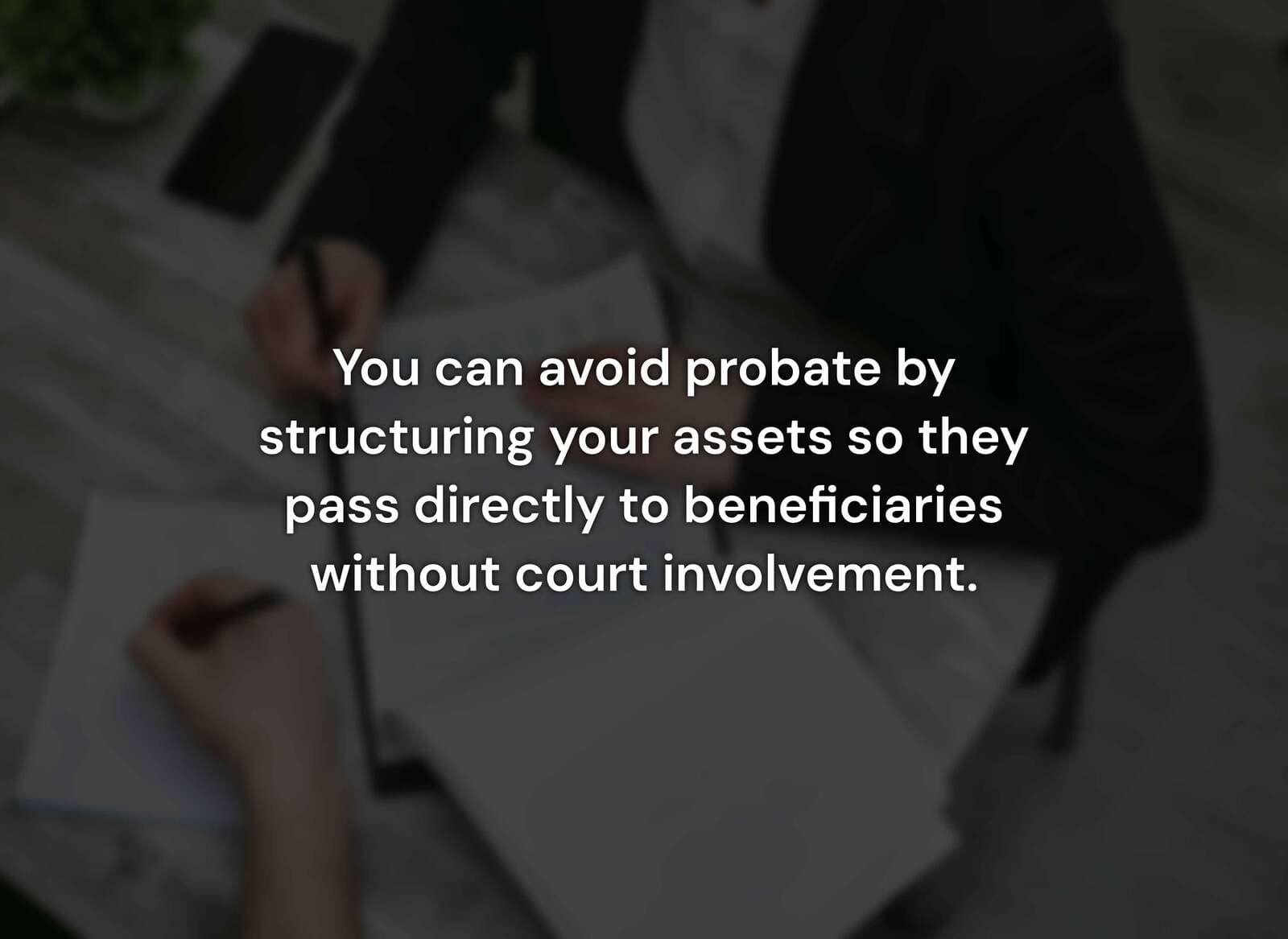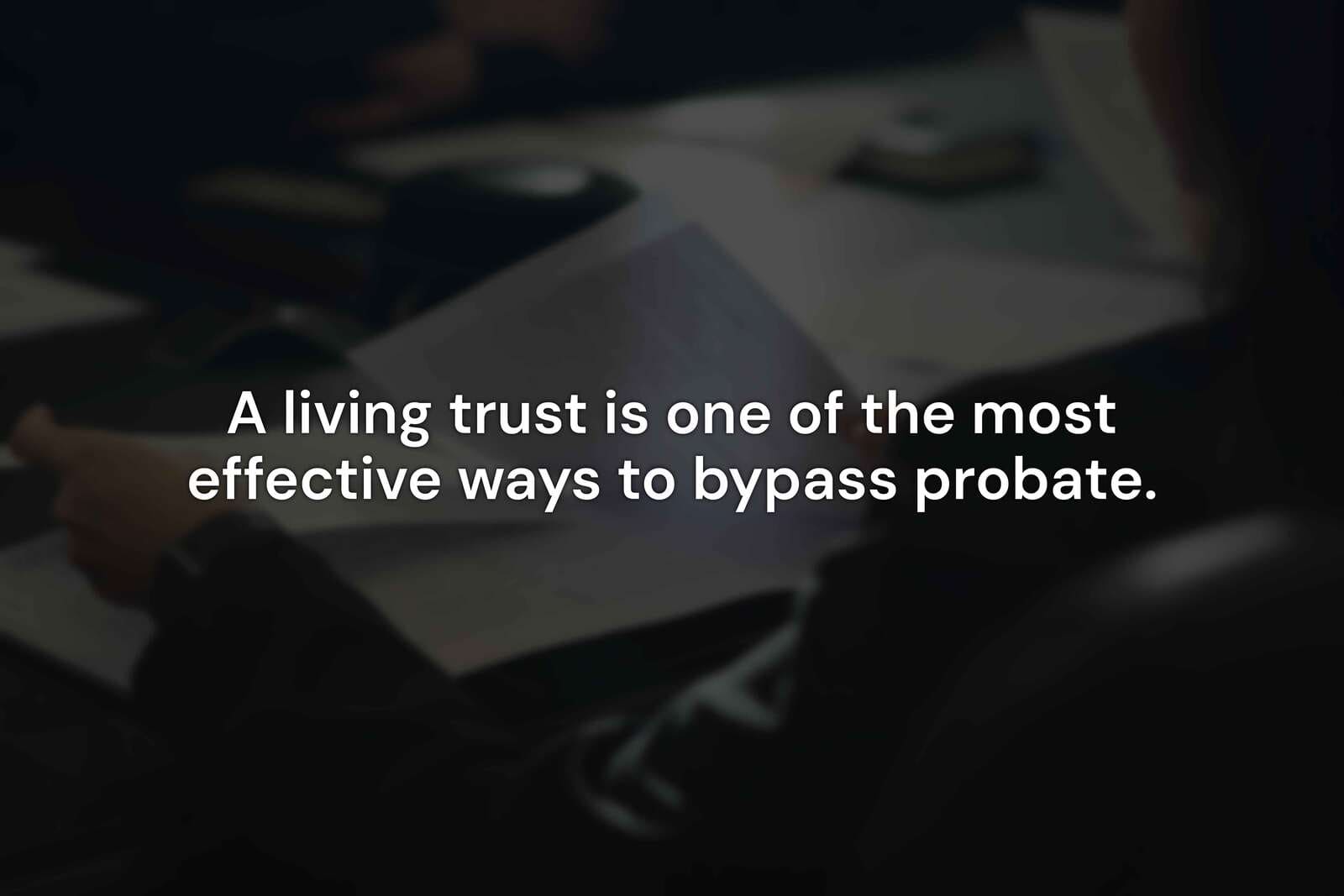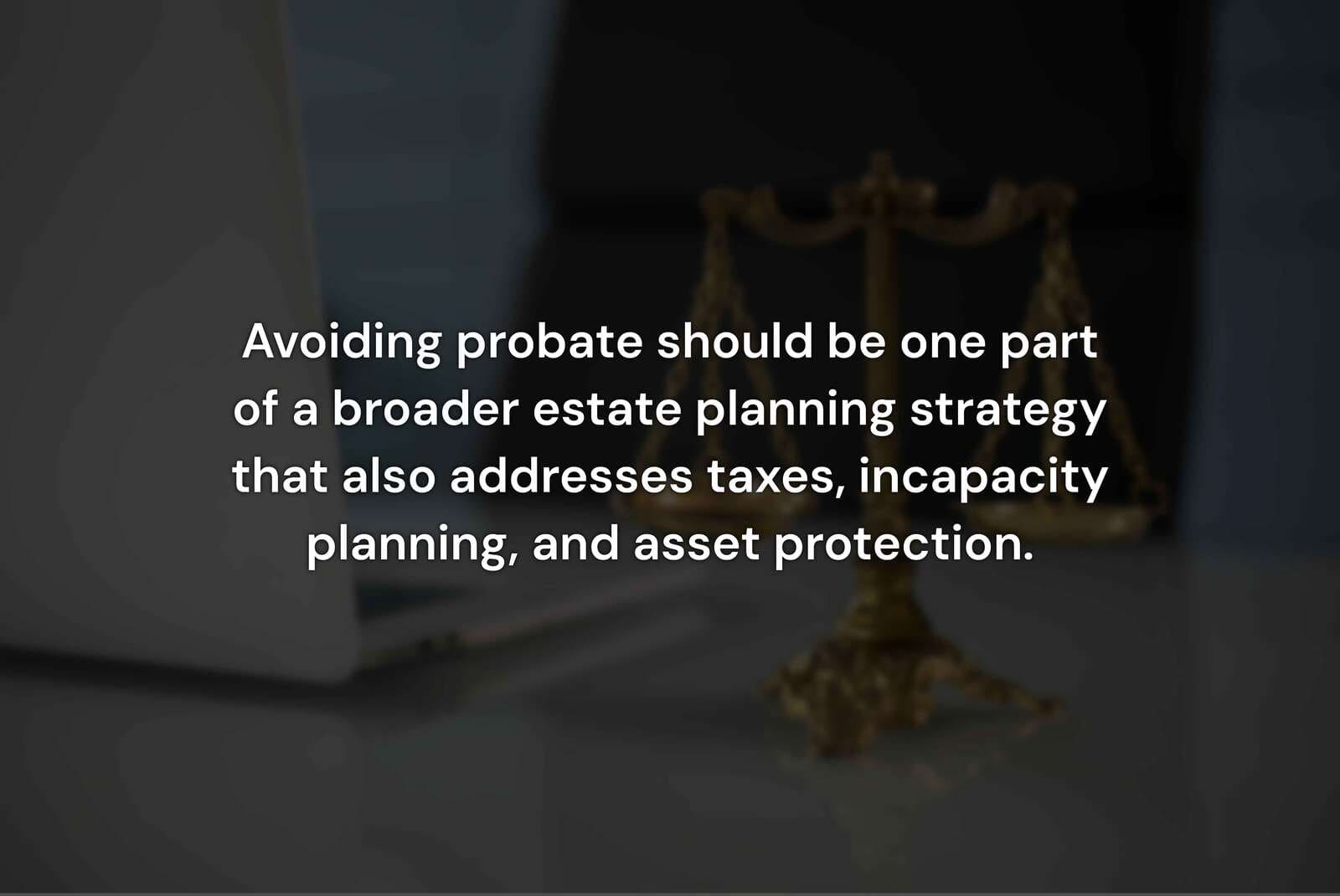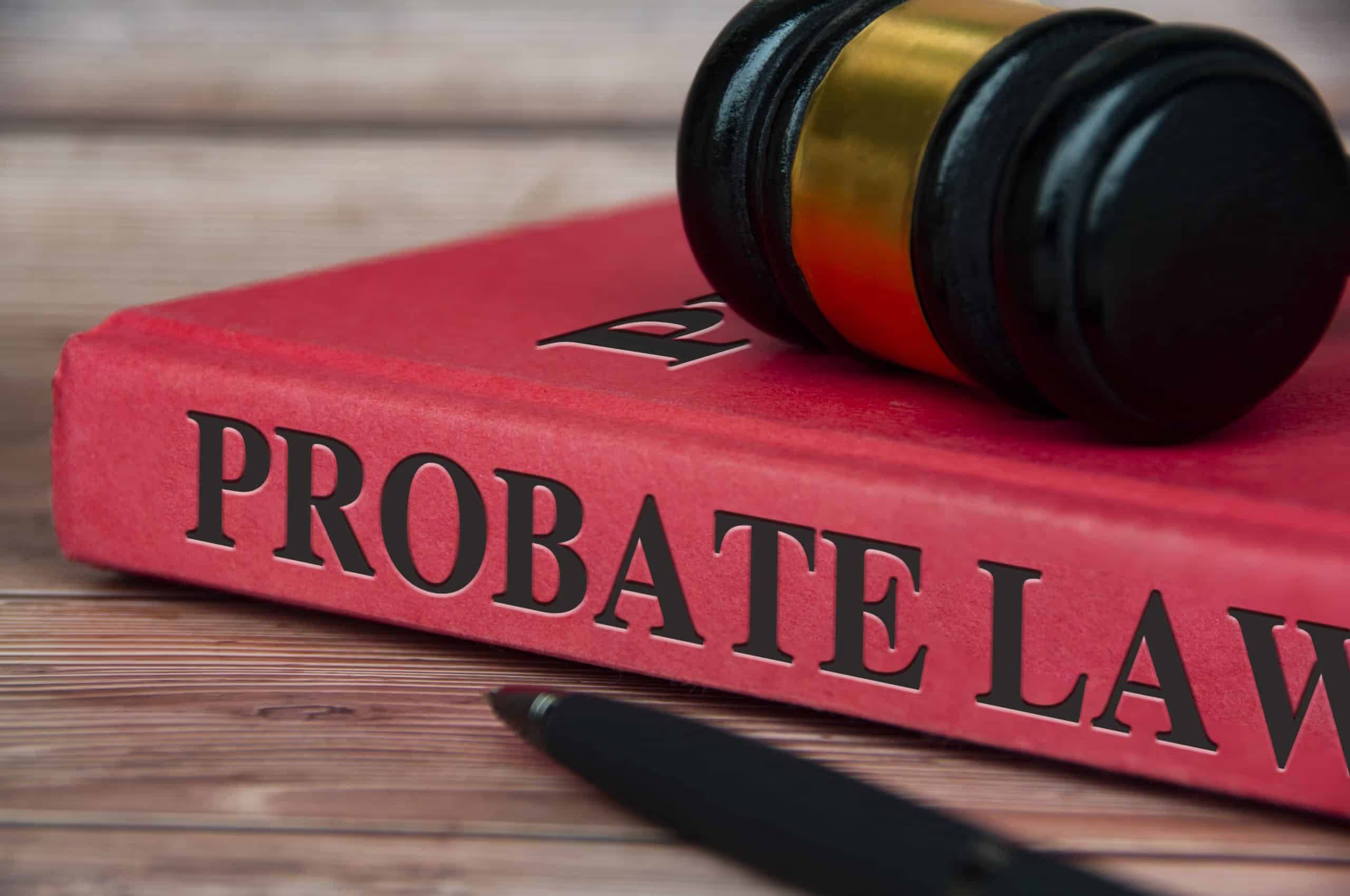You can avoid probate by structuring your assets so they pass directly to beneficiaries without court involvement. Common strategies include creating a living trust, using joint ownership, naming beneficiaries on accounts, and employing transfer-on-death deeds. Avoiding probate can save time, reduce costs, and keep your estate matters private.

Why People Want to Avoid Probate
Probate is the court-supervised process for validating a will and distributing assets. While it ensures debts are paid and legal procedures are followed, many people prefer to avoid it because:
- It can take six months to several years.
- Legal and court fees can reduce the estate’s value.
- Probate records are public, eliminating privacy.
- Family disputes can prolong the process and cause stress.
Strategy 1: Create a Living Trust
A living trust is one of the most effective ways to bypass probate. You transfer ownership of your assets into the trust, retaining control as the trustee during your lifetime. Upon your death, a successor trustee distributes the assets directly to beneficiaries according to the trust terms—no court process required.
Benefits include:
- Faster Distribution: Assets can be transferred in weeks instead of months or years.
- Privacy: Trust terms remain private, unlike probate records.
- Continuity: If you become incapacitated, your successor trustee can manage the trust without court intervention.

Strategy 2: Use Joint Ownership with Right of Survivorship
When you hold property as joint tenants with right of survivorship, ownership passes automatically to the surviving owner when one owner dies. This applies to real estate, bank accounts, and other jointly owned assets.
Key considerations:
- The surviving owner gains full control immediately.
- The property does not pass through probate.
- Joint ownership must be properly documented to ensure survivorship rights are recognized.
Strategy 3: Name Beneficiaries on Accounts
Many financial accounts allow you to name a “payable-on-death” (POD) or “transfer-on-death” (TOD) beneficiary. Upon your death, the funds in these accounts go directly to the named beneficiary without court involvement.
Examples include:
- Checking and savings accounts.
- Certificates of deposit (CDs).
- Investment accounts and brokerage portfolios.
Strategy 4: Use Transfer-on-Death Deeds for Real Estate
In some states, you can record a transfer-on-death deed for real estate. This deed names a beneficiary who will automatically inherit the property when you die.
Advantages:
- You maintain full control and ownership during your lifetime.
- The beneficiary receives the property without probate.
- You can revoke or change the deed at any time before death.
Strategy 5: Keep Beneficiary Designations Updated
Retirement accounts, life insurance policies, and annuities already allow for beneficiary designations. Keeping these designations current ensures that assets pass directly to the intended recipients without probate.
Common mistakes to avoid:
- Forgetting to update beneficiaries after major life events like marriage, divorce, or birth of a child.
- Naming a deceased individual without a contingent beneficiary.
When Probate is Unavoidable
Certain assets or circumstances may still require probate, even with planning:
- Assets solely in your name without a beneficiary designation.
- Disputed estates where beneficiaries challenge the will or trust.
- Complex estates with unclear ownership or missing documentation.
The Role of a Probate Attorney in Avoiding Probate
A qualified probate attorney can evaluate your estate and implement the right strategies to minimize or eliminate the need for probate. They can also ensure all legal requirements are met, preventing mistakes that could lead to court involvement.
Weighing the Pros and Cons of Avoiding Probate
While avoiding probate offers clear benefits, it’s not always the best choice in every situation. For example, court supervision can help resolve disputes and provide a clear legal pathway for transferring ownership. In some cases, probate can even be faster for small, uncontested estates.
Integrating Probate Avoidance into Your Estate Plan
Avoiding probate should be one part of a broader estate planning strategy that also addresses taxes, incapacity planning, and asset protection. Using multiple tools in combination—such as a living trust for real estate and POD accounts for cash—can ensure your assets pass efficiently and according to your wishes.

Expanding Your Estate Planning Knowledge
Will Meaning and Legal Importance
A will provides legally enforceable instructions for asset distribution after death, but it cannot avoid probate on its own.
What is a Power of Attorney?
A POA authorizes someone to act on your behalf for legal, financial, or medical matters during your lifetime, complementing other estate planning tools.
How Long Does Probate Take After Death?
The probate process can take months or years depending on the complexity of the estate and whether disputes arise.
What Happens During Probate?
Probate includes validating the will, paying debts and taxes, and distributing remaining assets under court supervision.



























